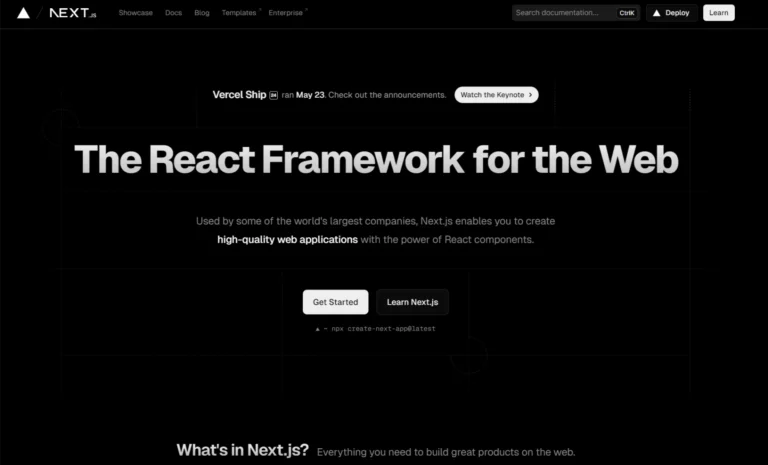A Note About Images: The images used in our articles are for illustration purposes only and may not exactly match the content. They are meant to engage readers, but the text should be relied upon for accurate information.
In the fast-paced world of software development, ensuring the security and reliability of code is paramount. Enter CodeQL, a powerful and innovative tool developed by GitHub that has revolutionized the way developers identify and fix security vulnerabilities in their code. CodeQL employs semantic code analysis to uncover potential security threats, making it an indispensable asset for enhancing the overall security of software applications. In this article, we will explore eight fascinating facts about CodeQL, shedding light on its capabilities, impact, and significance in the realm of cybersecurity and software development. From its origins to its practical applications, let’s embark on a journey to uncover the intriguing world of CodeQL and gain a deeper understanding of its role in fortifying the integrity and resilience of software systems.
Unveiling Key Takeaways:
- CodeQL is a sophisticated tool that acts as a detective for computer programs, helping developers find and fix problems in their code.
- Major tech companies like Microsoft and Google utilize CodeQL to ensure the safety and functionality of their software.
- CodeQL is like a superhero protecting your favorite apps, detecting vulnerabilities and ensuring code reliability.
Unveiling the Power of CodeQL:
CodeQL stands out as a powerful semantic code analysis engine developed by Semmle, later acquired by GitHub. This advanced tool allows developers to write queries to pinpoint security vulnerabilities, bugs, and other issues in codebases. By providing a deep understanding of code semantics, CodeQL empowers developers to efficiently identify and rectify potential problems, enhancing the overall security of software applications.
Unveiling CodeQL’s Influence:
Major tech companies such as Microsoft, Google, and Uber leverage CodeQL to enhance the security and reliability of their software. Its robust capabilities make it an invaluable asset for identifying and addressing security vulnerabilities and other code-related issues. CodeQL’s versatility and effectiveness have made it a cornerstone in the toolkit of developers and security professionals.
Unveiling CodeQL’s Versatility:
One of the key strengths of CodeQL is its support for a variety of programming languages, including C, C++, C#, Java, JavaScript, and Python. This versatility enables developers to perform thorough code analysis across a wide range of projects and codebases, ensuring a comprehensive approach to code security and reliability.
Unveiling CodeQL’s Open-Source Nature:
CodeQL is an open-source tool, allowing developers to leverage its capabilities for their projects. This open nature fosters collaboration and innovation within the developer community, leading to continuous improvements and advancements in code analysis and security practices. By embracing transparency and community involvement, CodeQL drives progress in code security.
Unveiling CodeQL’s Proactive Approach:
By utilizing CodeQL, developers can proactively detect and address security vulnerabilities and coding errors in their software. This proactive approach aids in mitigating potential risks and enhancing the overall security posture of applications and systems. CodeQL’s ability to identify issues early in the development lifecycle empowers developers to create secure and reliable software solutions.
Unveiling CodeQL’s Continuous Improvement:
With its advanced code analysis capabilities, CodeQL empowers developers to continuously enhance the quality and security of their code. By identifying and addressing issues early on, CodeQL plays a crucial role in the creation of robust and reliable software. Through continuous improvement, developers can strengthen their codebases and fortify their applications against potential threats.
Unveiling CodeQL’s Seamless Integration:
GitHub has seamlessly integrated CodeQL into its platform, providing developers with a streamlined experience for code analysis and vulnerability detection. This integration enhances the accessibility and usability of CodeQL for GitHub users, amplifying its impact in the software development ecosystem. CodeQL’s integration with GitHub simplifies the process of enhancing code security and reliability.
Unveiling CodeQL’s Customizability:
Developers can harness the full potential of CodeQL by crafting custom queries tailored to their specific code analysis requirements. This flexibility allows for targeted and precise identification of issues, enabling developers to optimize their codebases effectively and efficiently. CodeQL’s customizability empowers developers to tailor their security measures to suit their unique needs.
In conclusion, CodeQL emerges as a pivotal asset for developers and tech companies, revolutionizing code security and reliability. Its advanced capabilities enable proactive vulnerability detection, continuous code improvement, and seamless integration with popular development environments. With support for multiple programming languages and the ability to write custom queries, CodeQL empowers developers to enhance the security and reliability of their software. By fostering collaboration and innovation through its open-source nature, CodeQL drives progress in code security practices and contributes to the advancement of software development.
Frequently Asked Questions:
What is CodeQL?
CodeQL is a powerful semantic code analysis engine that enables developers to write queries to identify potential security vulnerabilities in their codebase. It integrates with popular development environments and offers a comprehensive database of code patterns.
How does CodeQL enhance code security?
CodeQL enhances code security by allowing developers to proactively identify and address security vulnerabilities in their code. By leveraging its advanced query language and extensive code pattern database, developers can fortify their code against malicious attacks and ensure the reliability of their software applications.
We are committed to delivering reliable and engaging content by tapping into the diverse insights and information contributed by real users like you. Our dedicated editors meticulously review each submission to ensure the highest standards of accuracy and reliability. Trust in our commitment to quality and authenticity as you explore and learn with us.






